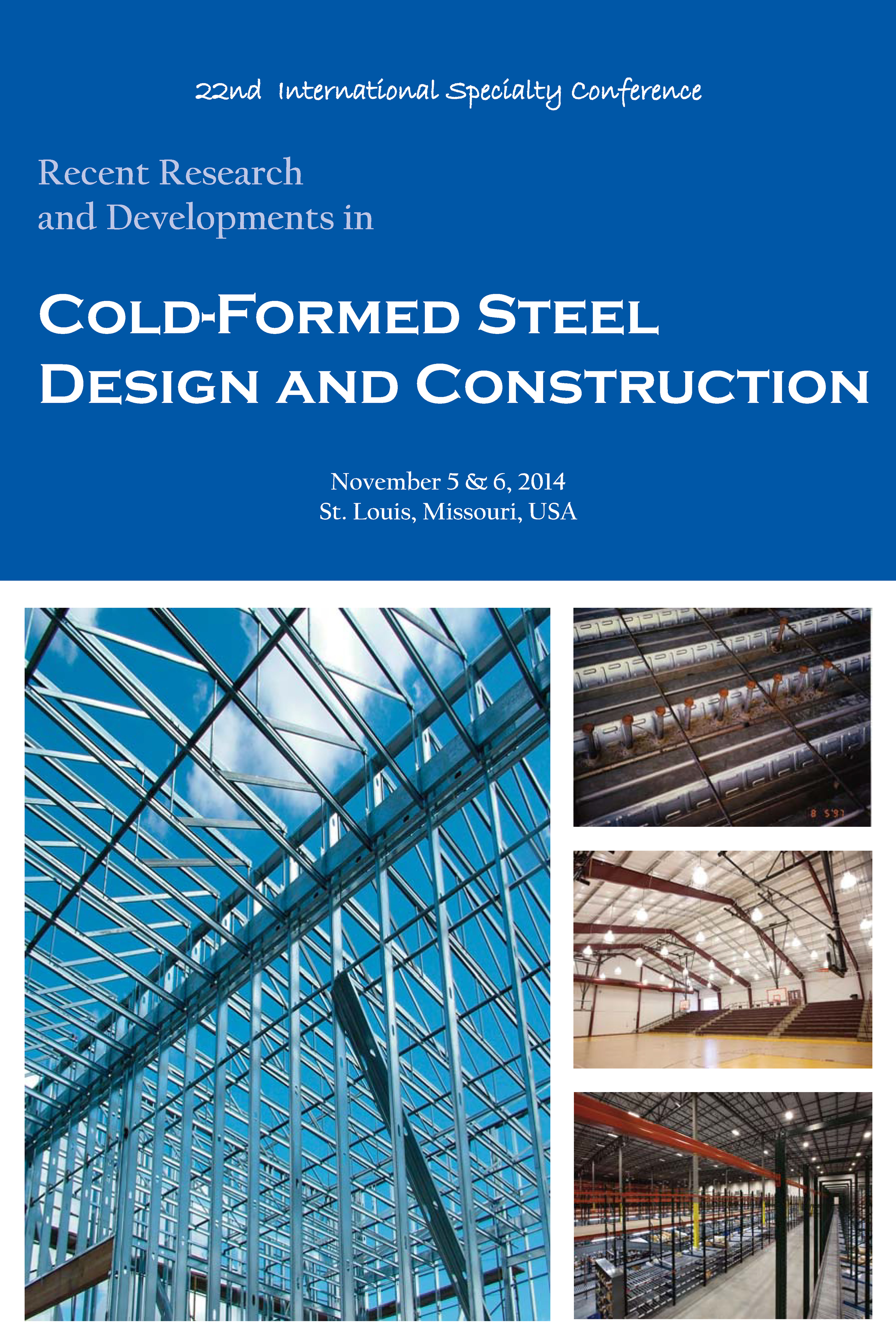Session Dates
06 Nov 2014
Abstract
Cold-formed steel wood-sheathed floor diaphragm system behavior is analyzed from a system reliability perspective. Floor systems consisting of oriented strand board (OSB), cold-formed steel (CFS) joists, tracks and screw fasteners are modeled using shell and spring elements in ABAQUS. (Dassault-Systems ())The models consider typical seismic demand loads, with careful treatment of light steel framing diaphragm boundary conditions and OSB sheathing kinematics, i.e., two sheets pulling apart or bearing against each other at an ultimate limit state, consistent with existing experimental results. The finite element results are used to build surrogate mathematical idealizations (series, parallel-brittle and parallel-ductile) for the critical system components. System reliability and reliability sensitivity, defined as the derivative of system reliability with respect to component reliability, are studied for these idealizations. These results represent mathematical upper and lower bounds to real system behavior, and are being used in ongoing research to codify beneficial diaphragm system effects.
Department(s)
Civil, Architectural and Environmental Engineering
Research Center/Lab(s)
Wei-Wen Yu Center for Cold-Formed Steel Structures
Sponsor(s)
National Science Foundation (U.S.)
Meeting Name
22nd International Specialty Conference on Cold-Formed Steel Structures
Publisher
Missouri University of Science and Technology
Document Version
Final Version
Rights
© 2014 Missouri University of Science and Technology, All rights reserved.
Document Type
Article - Conference proceedings
File Type
text
Language
English
Recommended Citation
Chatterjee, A.; Xiang, Y.; Moen, C. D.; Arwade, S. R.; and Schafer, Benjamin W., "Towards Quantifying Beneficial System Effects in Cold-Formed Steel Wood-Sheathed Floor Diaphragms" (2014). CCFSS Proceedings of International Specialty Conference on Cold-Formed Steel Structures (1971 - 2018). 4.
https://scholarsmine.mst.edu/isccss/22iccfss/session12/4
Towards Quantifying Beneficial System Effects in Cold-Formed Steel Wood-Sheathed Floor Diaphragms
Cold-formed steel wood-sheathed floor diaphragm system behavior is analyzed from a system reliability perspective. Floor systems consisting of oriented strand board (OSB), cold-formed steel (CFS) joists, tracks and screw fasteners are modeled using shell and spring elements in ABAQUS. (Dassault-Systems ())The models consider typical seismic demand loads, with careful treatment of light steel framing diaphragm boundary conditions and OSB sheathing kinematics, i.e., two sheets pulling apart or bearing against each other at an ultimate limit state, consistent with existing experimental results. The finite element results are used to build surrogate mathematical idealizations (series, parallel-brittle and parallel-ductile) for the critical system components. System reliability and reliability sensitivity, defined as the derivative of system reliability with respect to component reliability, are studied for these idealizations. These results represent mathematical upper and lower bounds to real system behavior, and are being used in ongoing research to codify beneficial diaphragm system effects.




Comments
This material is based upon work supported by the National Science Foundation under Grant Nos. 1301001 (Virginia Tech), 1301033 (University of Massachusetts, Amherst) and 1300484 (Johns Hopkins University).